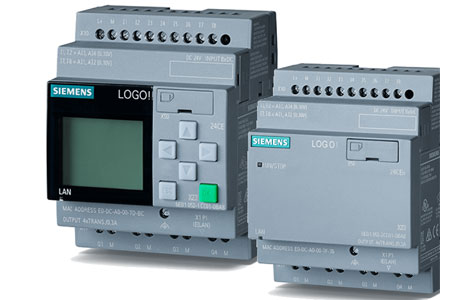What Is The Siemens S7 Used For?
Key Takeaway
Siemens S7 is a programmable logic controller (PLC) used to automate industrial processes. It controls various tasks such as machine operations, conveyor systems, and temperature monitoring, making it vital in industries like manufacturing, food and beverage, and building automation. The S7 PLC provides precise control, real-time monitoring, and seamless integration with other systems.
The S7’s modular design allows flexibility in configuring hardware components like CPUs, input/output modules, and communication interfaces, along with software programming through Siemens’ TIA Portal. These features make the S7 suitable for both simple and complex automation systems, ensuring efficient and reliable operation across various industries.
Introduction to Siemens S7 PLC Series
The Siemens S7 PLC series includes a range of controllers for industrial automation tasks. From the compact S7-1200 to high-performance S7-1500 systems, the series offers reliability and scalability for various applications. Integration with TIA Portal enhances efficiency.
These controllers support advanced protocols, motion control, and safety functions. They are ideal for Industry 4.0 solutions and are widely trusted for their robust performance.

Key Features of S7-300 and S7-1500 Models
Both the S7-300 and S7-1500 models are packed with features that make them reliable and efficient choices for industrial automation. The S7-300, known for its modular design, offers a wide range of I/O modules, communication processors, and CPU options, making it highly customizable for various automation requirements. It’s particularly well-suited for medium to large-sized systems, offering flexibility in configuration.
On the other hand, the S7-1500 is designed to handle more complex applications, offering enhanced processing power, higher communication speeds, and integrated diagnostics. It comes with a larger memory capacity, advanced motion control capabilities, and better connectivity options, making it ideal for industries with high automation demands. Both models feature seamless integration with Siemens’ TIA Portal software, which simplifies programming and system configuration.
You May Like to Read
Applications Across Industries
Siemens S7 PLCs are used in a broad range of industries, including manufacturing, automotive, energy, food and beverage, and pharmaceuticals. In manufacturing, they help automate production lines, control machinery, and monitor various processes to ensure optimal efficiency. The automotive industry relies on the S7 series for assembly line automation, quality control, and robotics integration. Additionally, the S7-1500 is used for high-precision applications in industries like energy and pharmaceuticals, where uptime and reliability are critical.
These PLCs are also vital in critical infrastructure systems such as water treatment plants, HVAC control, and traffic management systems, where real-time monitoring and control are essential. The versatility of the S7 series allows it to be used in virtually any application requiring automated control, monitoring, and data collection.
Benefits of Using Siemens S7 in Automation
The Siemens S7 PLC series offers several advantages, including enhanced performance, ease of integration, and scalability. One of the key benefits is its ability to handle complex control tasks with minimal downtime. The modular design of the S7-300 makes it highly adaptable, allowing users to customize their systems according to specific needs. For more demanding applications, the S7-1500 provides superior processing power and faster data handling, ensuring smooth operation even in high-stakes environments.
Moreover, Siemens S7 PLCs are supported by the TIA Portal software, which streamlines programming, diagnostics, and system monitoring. This reduces the time spent on configuration and troubleshooting, improving productivity. The compatibility with a wide range of communication protocols like PROFINET and PROFIBUS ensures that the S7 PLCs can be easily integrated with existing systems, making them a cost-effective solution for companies looking to upgrade their automation infrastructure.
Comparison with Other PLC Brands
When compared to other PLC brands, the Siemens S7 series stands out due to its robustness, ease of integration, and wide-ranging support options. While other PLCs may offer similar functionalities, Siemens S7 models are known for their reliability in harsh industrial environments and for handling large, complex systems with ease. The S7-1500, for instance, offers advanced features like built-in safety capabilities, motion control, and superior diagnostics, making it a strong competitor to other high-performance PLCs in the market.
Additionally, Siemens’ TIA Portal software provides a unified environment for programming and system management, which simplifies workflows and reduces the learning curve for operators and engineers. In contrast, other brands often rely on separate software tools for different tasks, which can be more cumbersome and time-consuming.
Conclusion
In conclusion, the Siemens S7 PLC series is a versatile and powerful tool in industrial automation. Whether you’re using the flexible and modular S7-300 or the high-performance S7-1500, these PLCs offer unmatched reliability, performance, and scalability across various industries. From manufacturing to critical infrastructure, the Siemens S7 series enables businesses to optimize their operations, reduce downtime, and improve productivity.
With its extensive range of features, ease of integration, and robust support system, the Siemens S7 series remains a top choice for companies seeking reliable and efficient automation solutions. As industries continue to demand more complex and efficient automation systems, Siemens S7 PLCs will undoubtedly remain at the forefront of industrial control technology.
